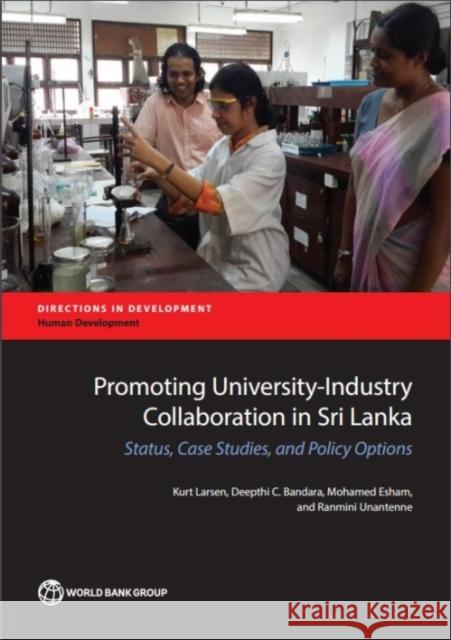Promoting University-Industry Collaboration in Sri Lanka » książka
Promoting University-Industry Collaboration in Sri Lanka
ISBN-13: 9781464809224 / Angielski / Miękka / 2016 / 96 str.
Strong science, technology, and innovation links between universities and industry are of critical importance to Sri Lanka as it strives to become an upper-middle-income country. This report presents an overview of current U-I collaboration in Sri Lanka by analyzing responses to a survey of companies and university departments in 2015. Data from the 2015 survey are compared with data from a similar survey in 2007 to identify trends over time. The study examines current policies to promote U-I collaboration in Sri Lanka, highlights some good practices in other countries, and suggests possible ways that Sri Lanka may be able to strengthen U-I collaboration. The report is intended primarily for policy makers in the fields of higher education, research, and innovation, as well as for researchers in companies, universities, and research institutes who are already collaborating in public-private partnerships or are planning to do so. The responses show that the majority of existing links between Sri Lankan universities and companies are short-term, informal interactions with low direct transfer of knowledge and innovation. However, the survey findings also show a growing emphasis on deeper and more demanding types of collaboration, such as joint Research and Development activities, prototype testing, and spin-offs, even though these remain relatively uncommon. Key recommendations to strengthen U-I collaboration are: -As part of the national Science, Technology, and Innovation Policy 2016-2020, develop and implement a national plan to upgrade the country's research infrastructure, in line with national research and innovation priorities. -Strengthen Research and Development funding schemes for joint projects between universities/research institutes and companies, based on national and international experiences. -Define and implement clear intellectual property rights rules for publicly funded research to encourage the use of research results and ensure effective and timely legal protection of intellectual property. -Establish open innovation spaces and business incubators at universities and make available seed money for faculty and students to develop start-ups. -Strengthen the U-I interaction cells at universities with professional expertise in technology transfer and business model development. -Establish opportunities for master's and PhD students to pursue targeted research projects in companies as part of their study.











